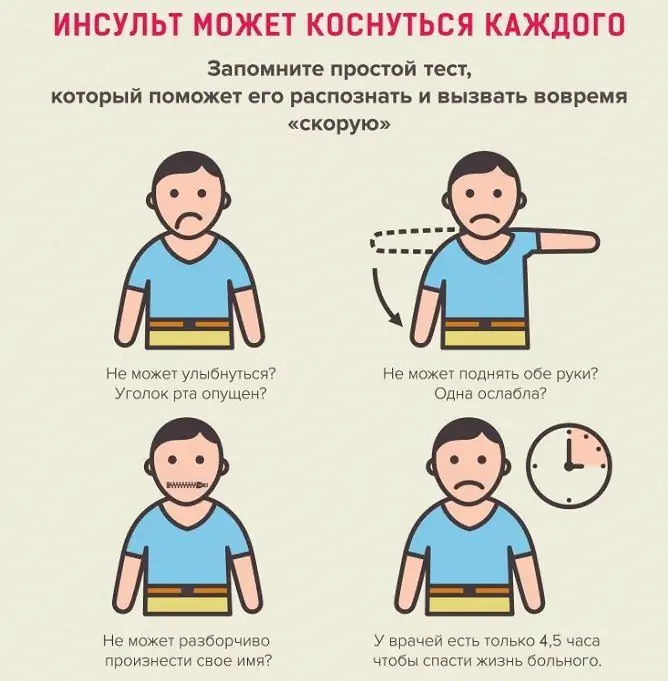- Author Rachel Wainwright wainwright@abchealthonline.com.
- Public 2023-12-15 07:39.
- Last modified 2025-11-02 20:14.
Vesiculitis

Vesiculitis, or spermatocystitis, is an inflammation of the seminal vesicles, the paired organs of the male reproductive system, located next to the prostate gland.
Vesiculitis reasons
Vesiculitis is rarely a primary or independent disease. Most often it accompanies other diseases of the genitourinary system - prostatitis, epididymitis, orchitis or urethritis. Effective treatment of prostatitis will be provided to you in the "Practicum" clinic. In some cases, it can be a complication of general diseases of the body - viral infection, tonsillitis, sinusitis, etc. In the first case, the causative agents of vesiculitis are usually sexually transmitted infections (STIs): chlamydia, ureaplasma, mycoplasma, Trichomonas, gonococcus. Infection as a result of adjacent inflammation enters the seminal vesicles through the vas deferens.
In the second case, the infectious agent is the virus or bacteria that caused the underlying disease. From distant sources, such an infection enters the seminal vesicles with the blood stream.
The factors contributing to the occurrence of vesiculitis, however, like other inflammatory diseases of the male genital area, are:
- Congestion in the small pelvis as a result of a sedentary lifestyle;
- Hypothermia;
- Disharmonious sexual life: irregular sexual life, too violent sexual activity, rare sexual activity, frequently used interrupted sexual intercourse;
- An unhealthy diet that leads to frequent constipation
- The presence in the body of foci of chronic infection (chroniosepsis): carious teeth, chronic sinusitis, etc.
Vesiculitis symptoms
Distinguish between acute and chronic vesiculitis. Most often, the disease is chronic.
Acute vesiculitis begins suddenly, with severe pain in the bladder, rectum, radiating to the groin, perineum, sacrum, lower back. When the muscles of the pelvic floor are strained, the pain intensifies, with a bowel movement, bloody discharge from the urethra may appear. Signs of acute vesiculitis are accompanied by a general worsening of the condition: a high temperature rises (39 ° C and above), headaches and muscle-joint pains, weakness, and nausea appear. Acute vesiculitis can result in self-healing, become chronic, which is most common, or cause a complication in the form of suppuration of seminal vesicles.
Chronic vesiculitis has symptoms similar to acute vesiculitis, but in a less severe form. The pain is mild, inconsistent, aching in nature, in the suprapubic region, perineum, rectum, sacrum. Pain may worsen or appear with bowel movements and urination. Ejaculation becomes painful, traces of blood appear in the semen. Sometimes signs of vesiculitis may be absent, then they talk about the asymptomatic course of the disease.
Chronic vesiculitis, if left untreated, causes degenerative abnormalities in the seminal vesicles, which interferes with sperm production and leads to infertility. Also complications of chronic vesiculitis include urinary disorders as a result of the spread of infection to the urinary tract, and erectile dysfunction.
Diagnostics of the vesiculitis
The diagnosis is made on the basis of the characteristic symptoms of vesiculitis, digital rectal examination data, transrectal ultrasound (TRUS) data, general and biochemical blood and urine tests, as well as bacteriological examination of the secretion of seminal vesicles. In chronic vesiculitis, a spermogram is examined.
Vesiculitis treatment
Treatment of vesiculitis must be carried out in conjunction with the treatment of the underlying disease.
Treatment of acute vesiculitis begins with the appointment of broad-spectrum antibiotics, non-steroidal anti-inflammatory drugs. Mild laxatives are prescribed in conjunction with diet to prevent constipation. Anti-inflammatory substances are also used in the form of rectal suppositories and warm microclysters. When the symptoms of acute inflammation are removed, the treatment of vesiculitis is continued with physiotherapeutic agents: UHF therapy, ultrasound therapy, magnetotherapy, laser therapy, therapy with sinusoidal modulated currents, electrophoresis. Assign a massage of seminal vesicles, warm sitz baths.

Treatment of chronic vesiculitis is carried out according to a similar scheme: antibiotics + anti-inflammatory drugs in general and local form, physiotherapy, massage. The difference is that antibiotics are carefully selected taking into account the data of bacterial sperm culture, are used in several successive courses with a change in the drug, anti-inflammatory therapy is carried out with the use of hormonal drugs.
For the successful treatment of vesiculitis, it is necessary to change the habitual lifestyle to a healthier one, which implies a healthy diet, regular bowel movements, a more mobile lifestyle that prevents the occurrence of congestion in the small pelvis, and regular sex life with a regular partner. Without such changes, the treatment of chronic vesiculitis can either be unsuccessful, or have only short-term success, and sooner or later the symptoms of vesiculitis will reappear.
Complications of vesiculitis
A complication of vesiculitis can be suppuration of the seminal vesicles. A sign of vesiculitis in a complicated form is a sharp exacerbation of the disease, a rise in temperature, acute pain in the suprapubic region, aggravated by tension of the pelvic muscles, and a general deterioration in the condition. This condition requires immediate hospitalization and urgent surgical intervention: the seminal vesicles are opened, drained, giving out pus, washed with antiseptic solutions, and broad-spectrum antibiotics are prescribed.
Infertility can also be a complication of inflammation of the seminal vesicles, especially long-term. In this case, the symptoms of vesiculitis are often so blurred that the disease is detected precisely during the examination for infertility. If the seminal vesicles are atrophied and sclerosed as a result of chronic inflammation, unfortunately, it is no longer possible to restore their normal functioning even if the disease is successfully cured and the infection is eliminated.
That is why the treatment of vesiculitis must be timely, persistent and must be brought to a complete cure.
YouTube video related to the article:
The information is generalized and provided for informational purposes only. At the first sign of illness, see your doctor. Self-medication is hazardous to health!






